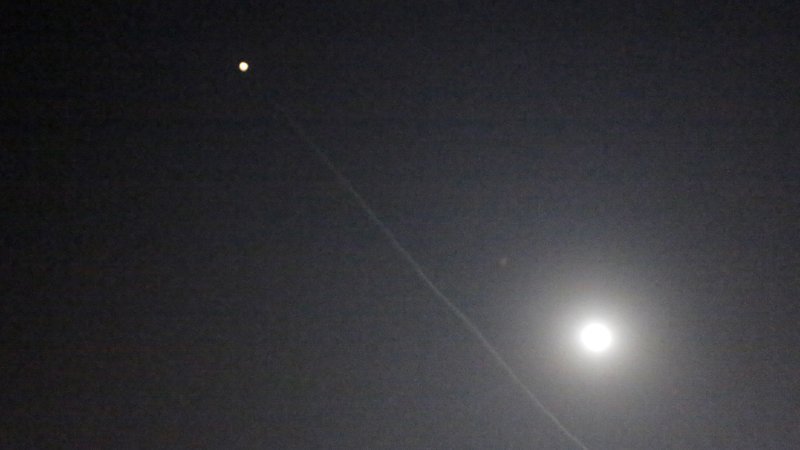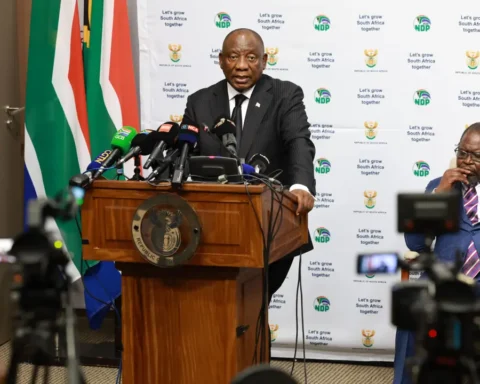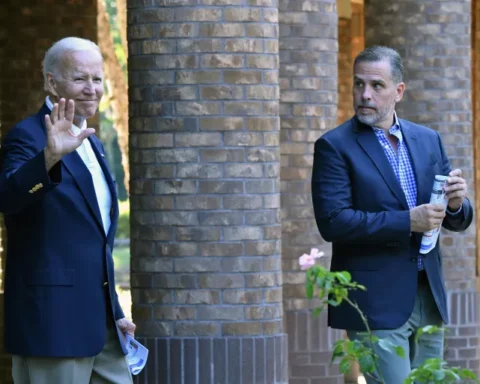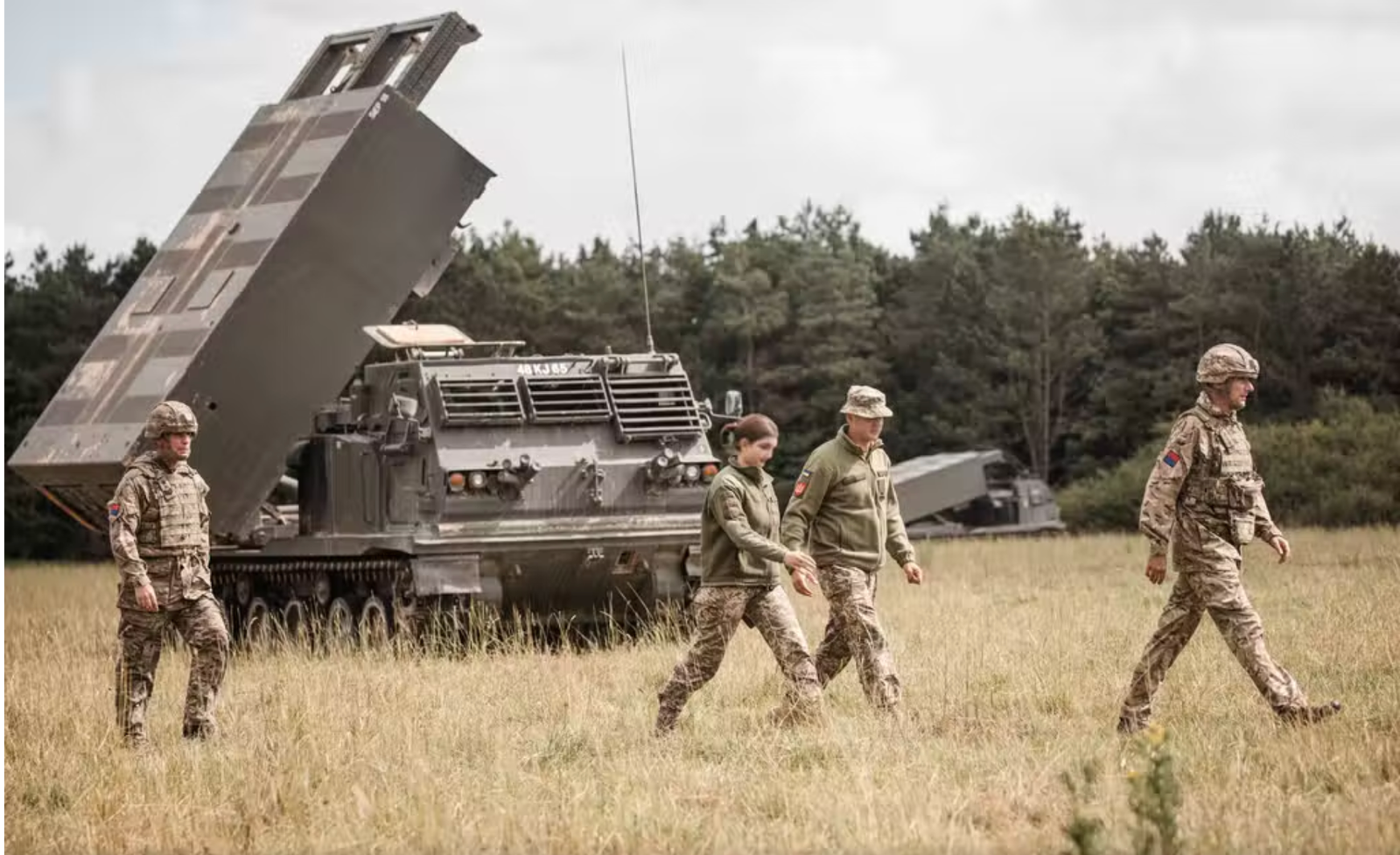Syrian air defences have shot down Israeli missiles near the capital Damascus on Tuesday, state media reported, while Israel said it was protecting itself from anti-aircraft fire.
The official Syrian news agency SANA said air defences “intercepted hostile missiles launched by the Israeli warplanes” from over Lebanese territories, citing a military source.
It added that the majority of them were downed before reaching their targets near the capital Damascus.
Three soldiers were injured and an ammunition depot damaged.
Israel has previously carried out several bombings in Syria against what it says are Iranian military targets and advanced arms deliveries to Hezbollah, the Iranian-backed Lebanese group, both enemies of the Jewish state.
Many of them have been in the area south of Damascus.
An Israeli military spokeswoman declined to comment on reports of a strike in Syria when contacted by AFP.
But it added in a statement: “An aerial defence system went off against an anti-aircraft missile launched from Syria. No damage or injuries were reported.”
The Britain-based Syrian Observatory for Human Rights war monitor also reported “an Israeli raid”.
“Missiles fired from Israeli planes targeted… arms depots southwest and south of Damascus that belong to Hezbollah or Iranian forces,” said Rami Abdel Rahman.
Israeli Prime Minister Benjamin Netanyahu has vowed not to let Tehran – a supporter of Syrian President Bashar al-Assad – entrench itself militarily in the war-torn country.
Experts say Israel is to be greatly affected by US President Donald Trump’s announcement of a withdrawal of American forces from Syria, as it would leave the area open to Iran and its partners to develop their military capacity.
There have been warnings from Israel and others that Iran is seeking to form a “land bridge” across to the Mediterranean, and some analysts have said that the US withdrawal could help that effort.
Yet Israeli officials, who have previously applauded Mr Trump’s policy in the Middle East, have stressed that it has long managed that front alone.
If confirmed, the strike would be the first by Israel since the US withdrawal was announced.
At the end of November, Syria said its air defences had targeted and downed a number of “hostile targets” over the Kisweh area south of Damascus.
US-led coalition reports recent air strikes on ISIS in Syria
Meanwhile, it has emerged the US-led coalition in Syria conducted air strikes last week that destroyed facilities used by so-called Islamic State, the coalition said, less than a week after US President Donald Trump declared victory over the militant group and said he would withdraw US troops from the war-torn country.
The coalition said its attacks during the week of December 16-22, including air strikes and “co-ordinated fires,” had destroyed logistics facilities and staging areas used by IS, damaged the group’s ability to finance its activities and “removed several hundred ISIS fighters from the battlefield.”
“ISIS presents a very real threat to the long-term stability in this region and our mission remains the same, the enduring defeat of ISIS,” said UK Major General Christopher Ghika, the deputy commander of the coalition.
ISIS is a commonly used acronym referring to Islamic State.
That statement presents a contrast to Mr Trump’s declaration last week that US troops had succeeded in their mission to defeat Islamic State and were no longer needed in the country.
News of the withdrawal drew immediate criticism from some of Mr Trump’s fellow Republicans, who said that leaving would strengthen the hand of Russia and Iran, which both support Syrian President Bashar al-Assad.
In response to Mr Trump, Britain’s Foreign Office said last week that Islamic State remained a threat even though it held no territory.
The withdrawal may also leave exposed an alliance of Kurdish and Arab militants known as the Syrian Democratic Forces, or SDF, which has been among the most effective against Islamic State, but is now seen under threat as Turkey weighs a new offensive in Syria.
It comes as Turkish President Recep Tayyip Erdogan said he will most probably meet his Russian counterpart Vladimir Putin face-to-face to discuss the US withdrawal from Syria.
The Kremlin has said Mr Putin has no immediate plans to meet Mr Erdogan
Turkey’s Foreign Minister Mevlut Cavusoglu will travel to Russia in the coming days to discuss the same issue, broadcaster CNN Turk quoted him as saying.
Mr Erdogan’s spokesman has previously said Turkey would increase co-ordination with Russia in Syria following the US decision to withdraw.
Mr Erdogan and Mr Trump have also agreed to co-ordinate to prevent a power vacuum from developing, Turkey has said.
Mr Cavusoglu told reporters at a briefing that Turkey aimed to cross to the east of the Euphrates river in northern Syria as soon as possible.
Turkey and the US have also agreed to complete their agreement on the Syrian town of Manbij by the time the US finishes its withdrawal, Mr Cavusoglu also said, according to the state-owned Anadolu news agency.
Under the Manbij roadmap, Turkey and the US agreed to a complete withdrawal of the Kurdish YPG militia from the town. Ankara considers the YPG to be a terrorist organisation.
Turkey has also vowed that the fight against so-called Islamic State would not be slowed by the US withdrawal.








